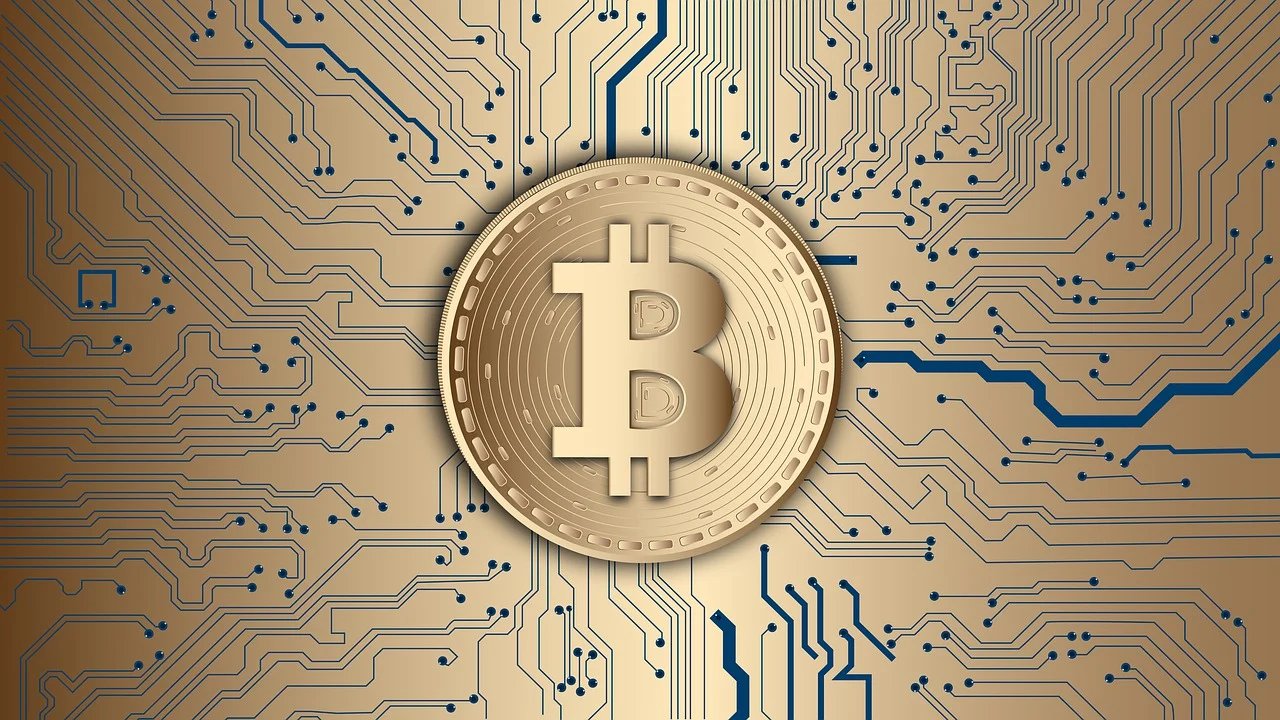
Blockchain technology and cryptocurrencies have become popular search terms over the last few years across a variety of industries. The new idea has received a mixed reception from governments and society, with many wealthy nations either outlawing it or attempting to stop its spread. But the question remains: Would the system that has been so meticulously designed over the past few centuries be destroyed by the decentralization that technology brings?
What exactly is blockchain, and how does it relate to cryptocurrencies?

A blockchain is a distributed database or ledger shared across the nodes of a computer network, according to the textbook description of the technology. Any industry can benefit from using blockchains to make data immutable, which is the technical phrase for not being able to be changed.
Let’s use an example to better grasp this. Consider an Excel spreadsheet. It is utilized by us to enter and modify info. In Excel, a cell is a block into which we may enter any amount of data. After entering the data, it is encrypted, resulting in a hash, which is a hexadecimal number. The block’s title is contained in this hash. Every time new information was desired to be added, a new block with its hash was generated and attached to the previous block.
One could completely secure data using this method because the timestamp of the data could not be altered. If such a negative outcome occurred, it would have to coincide with the earlier building pieces that revealed the deception. The Bitcoin blockchain operates in this manner. The blockchain of each cryptocurrency functions differently. For instance, a transaction is finished on the Bitcoin blockchain after a block is closed. The block is not regarded as confirmed until five other blocks have been verified. The network takes a little under 10 minutes per block on average to complete confirmation, which takes around an hour. As opposed to this, the Ethereum blockchain selects one validator at random from among all users who have staked ether to validate blocks, which are then confirmed by the network. In comparison to the Bitcoin process, this is far faster and less energy-intensive.
Furthermore, because the database’s data is dispersed among several devices, including PCs and cell phones, it is impossible to change the data through a single node because the database would reject the effort. Because anybody can observe the technology using their node or blockchain explorers, it is also transparent.

So, in a nutshell, what is cryptocurrency? Cryptocurrency is essentially a virtual currency with no physical equivalent. It is produced by crypto mining, a process that calls for powerful processing hardware to solve challenging mathematical puzzles. The currency is transacted on a ledger called the blockchain.
Why is money so difficult for people to understand and troublesome with a concept like this? The currency is worthless at its core. Cryptocurrency does not have an underlying, such as gold or cash that is a promissory note. These cryptocurrencies’ prices are turbulent and stationary for extended periods because they only respond to irregular human behavior.
However, since the BFSI business is rife with instances, banks, and financial services use blockchain and cryptocurrency for a variety of reasons.

Quorum from JP Morgan.
In 2016, JPMC developed Quorum as an offshoot of the Ethereum blockchain. Quorum is similar to Ethereum but includes more features that make it appropriate for business use. The attributes are
Permission: Users of Quorum can design protected networks that are permission-based and comprise just the nodes that have been granted permission to join.
Data Privacy: While all transaction data on Ethereum is accessible to the public, Quorum enables you to control who can access and view data. The data can be made available to the general public, just the nodes involved in the private network, or only a certain subset of those nodes.
Higher average transaction speed: Depending on the consensus mechanism selected and the network’s complexity, most Quorum users typically experience higher average transaction speeds compared to Ethereum users. Quorum can handle a few hundred transactions per second, but Ethereum can only handle roughly 15 per second.
JPMC launched the JPM token before ConsenSys acquired Quorum to simplify value transfers between businesses. JPM was a stable currency because it was tied to the US Dollar. JPM was only accessible to businesses with USD deposits in JPMC and was only used for B2B transactions, not by the general public. Since ConsenSys acquired Quorum, it has drawn a lot of interest from investors, including Microsoft, HSBC, ING Group, LVMH, and Novartis, to mention a few.

R3 Corda
R3 Corda Corda was developed by R3, a corporation that David E. Rutter, Todd McDonald, and Jesse Edwards formed. A group of 200 banks, financial services providers, and technology firms created it as an open-source initiative. This Distributed Ledger Technology (DLT) was created with financial services in mind.
Because R3 Corda employs a “shared ledger” method to DLT, no single user is required to connect to a single database. The ledger is instead duplicated by each user, who updates it with the most recent transactions. Sensitive information is kept private and confidential by only sharing it with the people engaged in a transaction. It is then added to each user’s ledger after the transaction has been validated and approved by all parties involved.
This strategy provides several benefits over other DLT platforms, including the blockchain of Bitcoin:
The amount of data that needs to be processed and stored is greatly decreased.
It greatly increases the difficulty for hostile actors to alter or remove data.
It makes it possible to manage who has access to what data in a much more detailed manner.
R3 Additionally, “smart contracts” are used by Corda to automate some portions of transactions. A piece of code known as a “smart contract” specifies the terms of a contract between two parties. The code is automatically carried out once the contract’s conditions have been accepted by all parties. In other words, automated processes can take the place of manual ones such as paperwork and signatures.
From straightforward operations like moving money from one account to another to more complicated ones like issuing bonds or syndicated loans, smart contracts can be used for a wide range of transactions.
Corda did not previously have a platform-wide exclusive cryptocurrency coin of its own because it is a private blockchain. Companies building private networks using Corda have always had the option of establishing their transaction tokens or coins.
Developers can generate tokens or coins that adhere to certain criteria by using the Token SDK specification provided by Corda.
The Corda network’s owner R3, and the hybrid public-private blockchain platform XinFin, signed a partnership agreement in March 2021. According to the agreement, the cryptocurrency XDC from XinFin was designated as the main settlement coin on Corda. Naturally, businesses can continue to make and use their coinage if they wish.
The agreement has made it possible for Corda-based private networks to communicate with other blockchain platforms as XDC is an Ethereum-compatible coin.
The first bank in India to use Blockchain for foreign remittances was ICICI Bank. However, it immediately stopped using that arm as a result of RBI’s position on cryptocurrency. Meanwhile, Axis Bank employs Ripple technology for the same purpose through the use of XRP. This type of remittance is preferable because it does not incur the commission fees associated with overseas transfers.


As a result, even though the fundamental idea behind cryptography still needs to be developed further, it cannot be disregarded. When considered on a larger scale, the use cases for blockchain and cryptocurrencies are enormous.
Capital Market
Issuance
Trading and sales
Settlement and clearing
Post-trade infrastructure and services
Asset maintenance
Custody
Asset Management
Fundraising
Asset management transfer agency
Administration of funds
Payments and Remittances
Locally made retail payments
Settlement of wholesale domestic and foreign securities
International payments
Stablecoins tokenized fiat and cryptocurrencies
Trade Finance
Bills of lading and letters of credit.
Financing arrangements
Insurance
Processing and payment of claims
Specified contracts
Markets for reinsurance
Hence just riding on the coattails of Reserve Banks and the opinions of other institutions would not be advisable in the case of this innovation. While cryptocurrency may not be a wise choice for trading and investment purposes it makes a great tool for various financial institutions for activities other than the aforementioned.
References:
Adam Hayes, “Blockchain Facts: What is it, How it works and how it can be used”, Investopedia, April 23, 2023, https://www.investopedia.com/terms/b/blockchain.asp
Kaspersky, “What is cryptocurrency and how does it work”, https://www.kaspersky.com/resource-center/definitions/what-is-cryptocurrency
Ripple, “Ripple-powered Instant Payment Services Now Live with Axis Bank, RAKBANK, and Standard Chartered”, Nov 22, 2017, https://ripple.com/insights/ripple-powered-instant-payment-services-now-live-axis-bank-rakbank-standard-chartered/
–Senior TJEF Editor
-Denver Roberts















Leave a comment